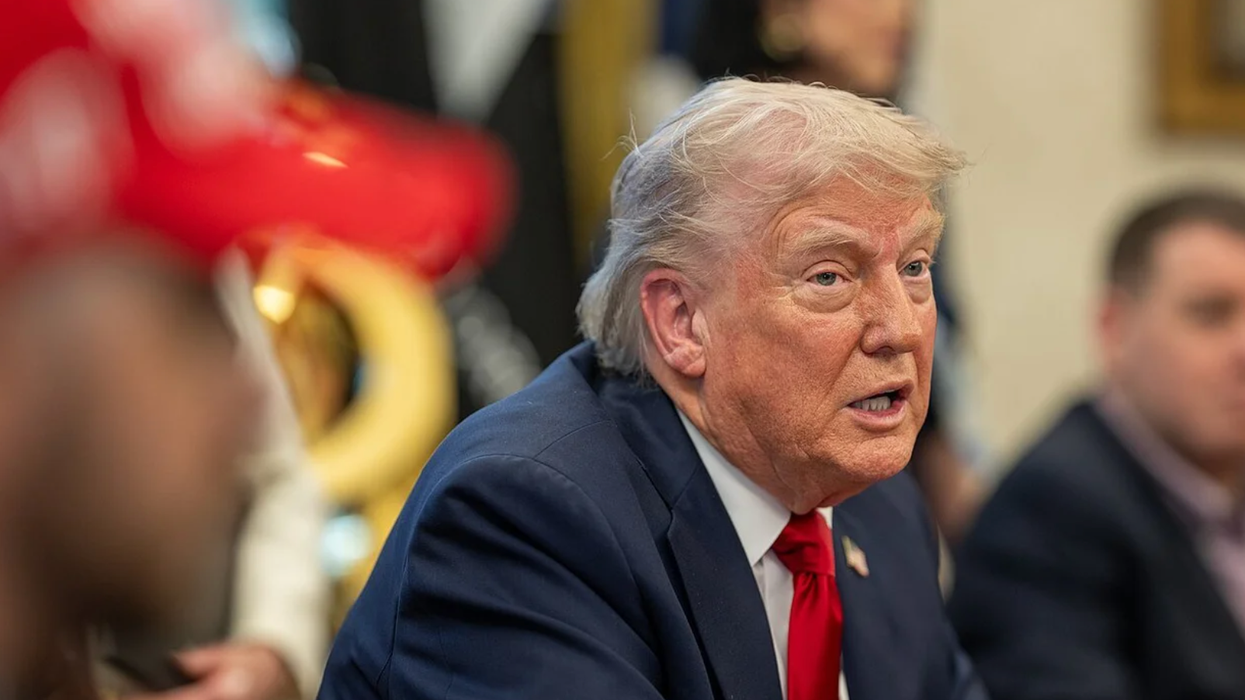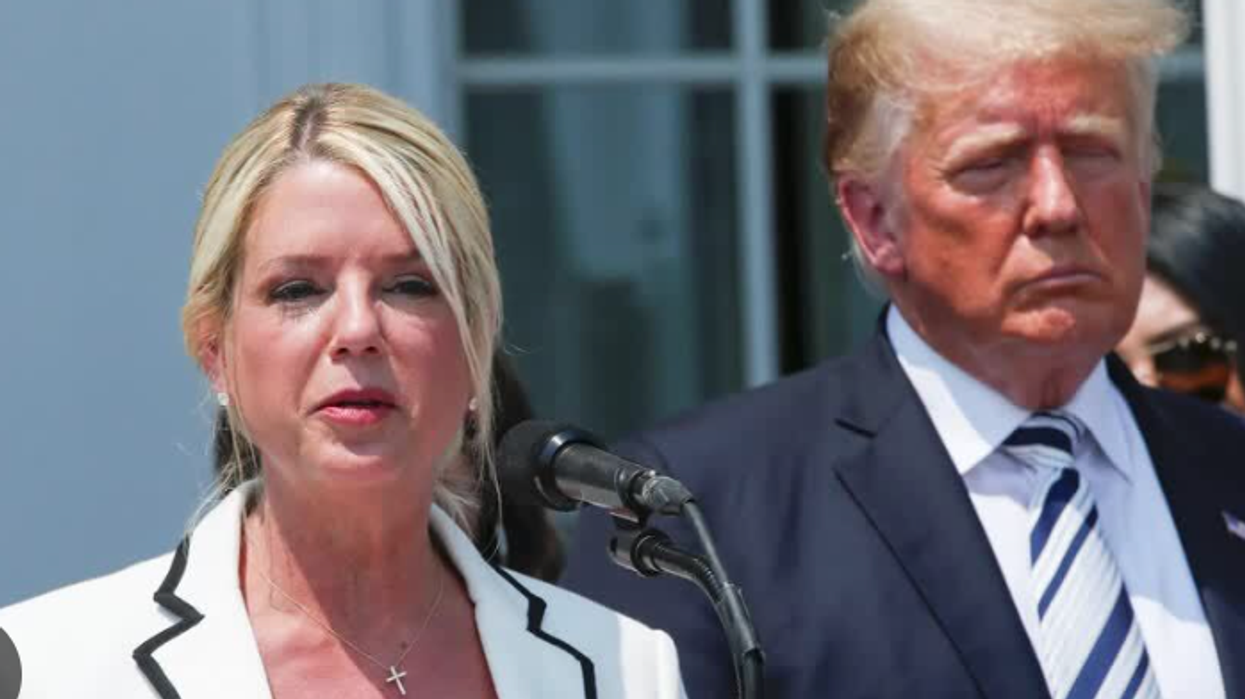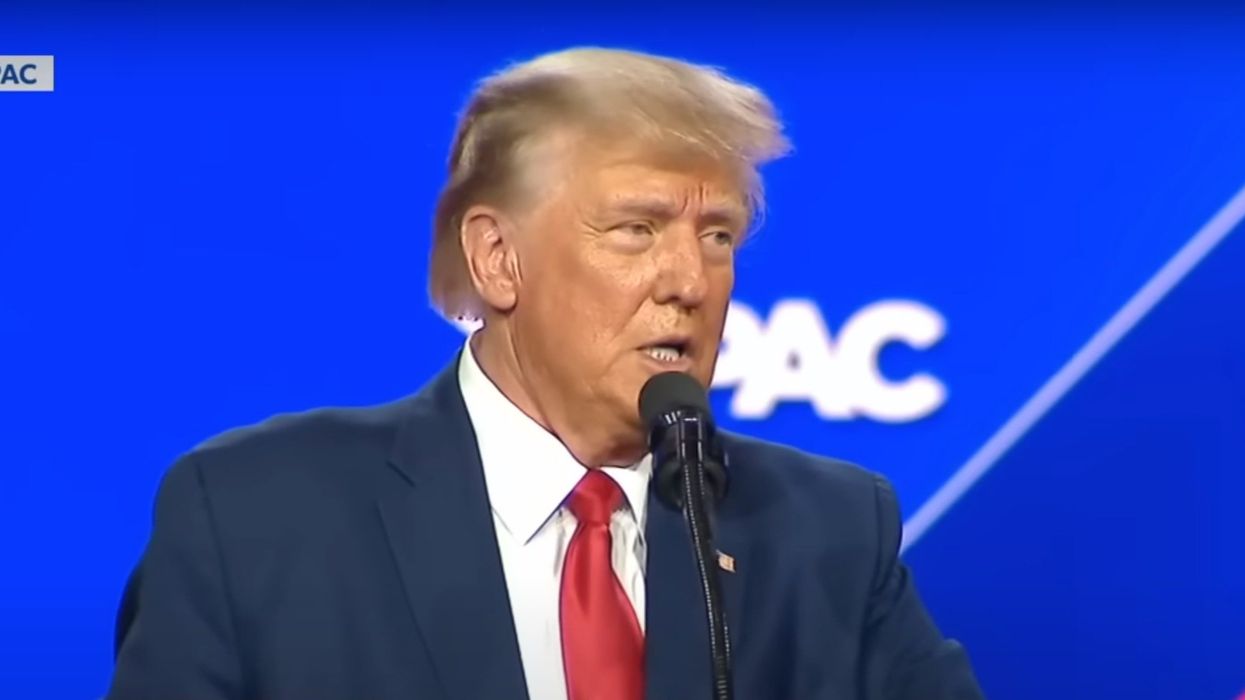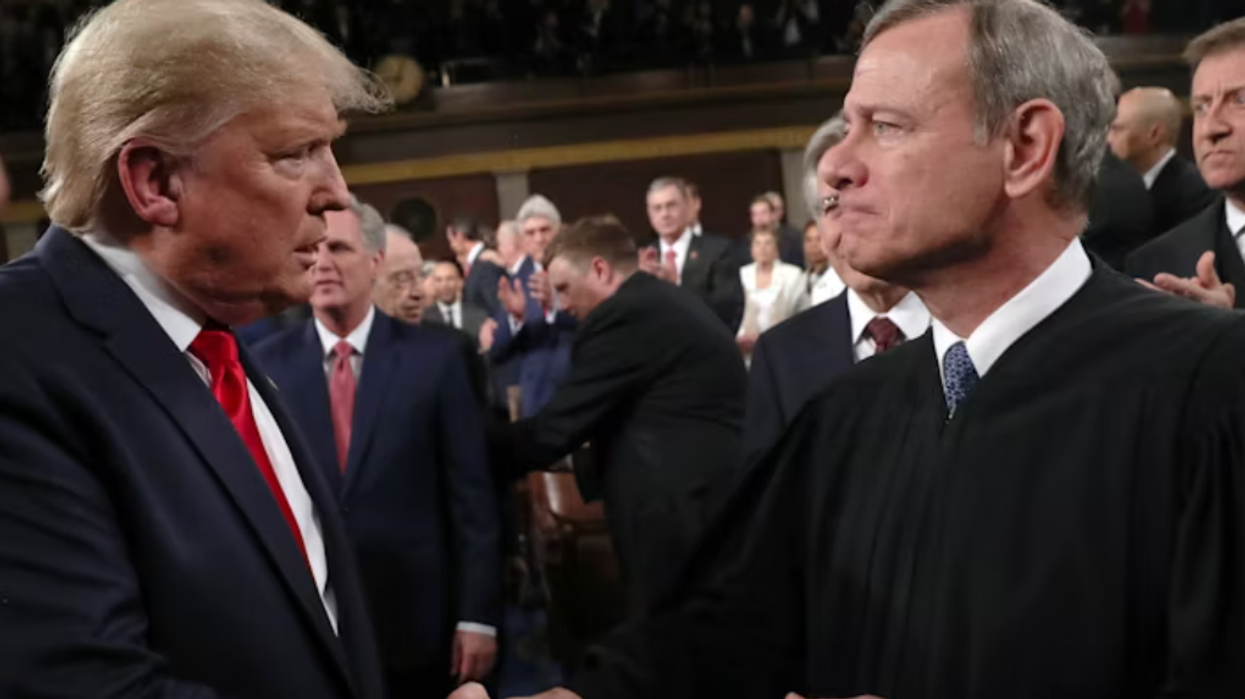Chin Up! We're Doing Better Than Expected -- Or At Least Trump Is Doing Worse
It’s wonderful to see isn’t it? A snake in the grass slithering up to bite the ass of the person who had beckoned it forth?
That is the spectacle we have been treated to for these weeks and months since January 20, as one executive order signed by Trump after another has fallen to the considerations of judges who, one, can read the law, and two, require that assertions made in the executive orders, and those made by Trump’s DOJ lawyers in court, must be backed up by evidence and that pesky bane of every authoritarian, reason.
Lawsuits have been filed and Trump’s hastily written executive orders have been subjected to scrutiny by legal minds sharper than those which backed up Trump’s Sharpie. Most recently, the ordinarily somnolent Court of International Trade, in a 3-0 ruling, blocked almost all of Trump’s tariffs, which he had imposed using powers he asserted under the International Emergency Economic Powers Act (IEEPA), a 1977 law which allows a president to regulate international commerce after declaring a “national emergency” due to an “unusual and extraordinary threat ... to the national security, foreign policy, or economy of the United States" originating from outside the borders of the country. The court found that retaliating for tariffs imposed by other countries, or otherwise addressing trade imbalances, does not constitute such a threat and thus does not justify the declaration of national emergency necessary for the assertion of powers under the IEEPA.
The Trump administration quickly appealed, and a court of appeals issued a stay of the trade court’s injunction rejecting or limiting Trump’s tariffs, at least until the case can be heard and a ruling can be issued on the merits. In the meantime, a district court issued a similar ruling blocking Trump’s tariffs in response to a lawsuit filed by a toy company that had been hugely and negatively affected by Trump’s tariffs on trade with China. That ruling has also been temporarily stayed on appeal.
Trump reacted to the trade court ruling by attacking the Federalist Society and its leader, Leonard Leo, on whom he had relied for advice on judicial appointments during his first administration. In a rage-filled post on Truth Social, Trump called Leo “a sleazebag” and “a bad person who, in his own way, probably hates America,” his catchall criticism for anyone he feels has wronged him in some way.
Trump’s assertion of power using executive orders has run counter to a Supreme Court decision that he and his arch-conservative legal allies had long sought. The decision, in Loper Bright Enterprises v. Raimondo, overturned the so-called “major questions doctrine” which dated back to 1984 and required courts to defer to federal agencies when interpreting complicated and ambiguous laws. The trade court cited the Loper decision in its ruling slamming Trump’s tariffs. Trump reacted with fury, writing, “The horrific decision stated that I would have to get the approval of Congress for these Tariffs.”
Well, yes, that is what the sting of the Loper decision feels like when it bites you in the ass.
We are witnessing a delicious moment best summed up by what we might call the hippie-era “what goes around, comes around” doctrine. That occurs when the thing that you wished for starts to affect you in ways that you had not contemplated, perhaps because your contemplation of what you wanted was inadequate in its consideration of what effect it might have in the future.
Multiple lawsuits and federal court rulings have kicked much of Trump’s executive order agenda to the curb. A federal court blocked Trump’s attempt to do away with birthright citizenship, which is written into the text of the Constitution. A federal judge in Boston ruled that Trump cannot stop Harvard from accepting foreign-born students. More lawsuits filed by Harvard seek to overturn Trump’s orders to strip Harvard of federal funds and grants. Legal experts say those lawsuits are likely to be successful because the reasoning behind Trump’s moves against Harvard is so blatantly punitive.
Other judges have overturned Trump’s attempts to bar several major law firms from entering federal government buildings, holding top secret security clearances, or representing companies doing business with the federal government, again because Trump’s orders have been nakedly punitive.
Other judges have ordered the return of people deported under false pretenses. The Supreme Court itself handed down an emergency ruling that the Trump administration must afford undocumented immigrants the same due process rights granted to everyone under the Constitution.
The news website Axios summed up the “flood” of rulings against Trump this way: “The headlines are constant: Judge blocks X; Judge freezes Y; Court allows Z to continue.”
On Friday, Trump bid farewell to his erstwhile ally, Elon Musk, at the end of his time as a so-called “temporary federal employee” overseeing his DOGE worm-burrowing into federal agencies seeking to eliminate or undermine them, as he did with USAID and the Department of Education. But even in those two cases, federal judges have reversed some of the DOGE moves and reinstated funding and in some cases order the rehiring of employees who had been summarily fired without cause in violation of federal regulations.
The effect of DOGE and Musk has been, by their own measure, lame. Musk announced on the campaign trail and after he was appointed to head DOGE that he would reduce the federal deficit by $2 trillion. Then it was $1 trillion, then $200 billion, and Musk had stopped talking about the federal deficit and started claiming “savings” from the discovery by DOGE of “waste, fraud, and abuse,” which in Washington D.C. could be uncovered by a street sweeper with a broom and dustpan.
In the end, Musk claimed that he had “saved” $175 billion. Robert Hubbell yesterday called that figure a “mirage,” citing “A study by the Budget Lab at Yale estimates that cuts to the IRS will result in $350 billion in reduced tax collections over the next ten years—an amount that is double the alleged ‘savings’ by DOGE.”
Much if not most of what Musk and Trump attempted to do with DOGE has been overturned by federal courts, which have found certain of their moves unconstitutional and others to have violated previous Supreme Court decisions such as the Loper decision. In the meantime, the New York Times headlined on the front page of the Sunday paper a major investigative story on Musk’s drug use during the campaign and afterwards while he was working as a temporary government employee.
Musk was described as having used Ketamine, Ecstasy, psychedelic mushrooms, the stimulant Adderall, and the sleeping medication Ambien. The Times reported that Musk, like all federal employees, was supposed to have been drug-tested periodically during his employment. He was said to have been forewarned of the drug tests so that he could pass them.
So, Donald Trump has relied on a drug-addled madman with Nazi sympathies to undertake his reform of the government he is charged with overseeing. And now Musk has turned on him, criticizing Trump’s “big, beautiful bill” and its lifting of the debt ceiling.
When Trump rolled out his plethora of executive orders, signing the first bunch before an adoring MAGA crowd at a sports facility in Washington on inauguration eve, I first thought, Oh-oh. They’re serious this time.
I should have known. The lawyers Trump used to write the executive orders were not from the big law firms he would soon move to eliminate from working on federal government cases, because those firms had long refused to do legal work for him. According to Adam Bonica, a professor of political science at Stanford, Trump lost a stunning 96 percent of the cases filed against him in federal court during May. During April, he lost 76 percent. During March, the number was 74 percent. The judges ruling against the Trump administration were appointed by both political parties, with those appointed by Democrats outnumbering Republican judges by only 8 percent.
The Washington Post reported today that Trump’s FBI is in “chaos” due to the mismanagement of Director Kash Patel. Over at the Department of Defense, the top aides to Secretary Pete Hegseth are said to be at each other’s throats.
Here is my estimation of where we are on the first day of June, 2025. Things could be a whole lot worse, and they’re showing signs of getting better, as Trump continues to attack the judges he appointed to the bench and former allies like Elon Musk are now off the White House leash and his Adderall-fueled tongue is bound to start wagging.
Chin up. We’ve got a long way to go, but Trump and the fools he appointed to his cabinet are living up to every expectation we should have had about them.
Lucian K. Truscott IV, a graduate of West Point, has had a 50-year career as a journalist, novelist, and screenwriter. He has covered Watergate, the Stonewall riots, and wars in Lebanon, Iraq, and Afghanistan. He is also the author of five bestselling novels. He writes every day at luciantruscott.substack.com and you can follow him on Bluesky @lktiv.bsky.social and on Facebook at Lucian K. Truscott IV. Please consider subscribing to his Substack.
Reprinted with permission from Lucian Truscott Newsletter.












